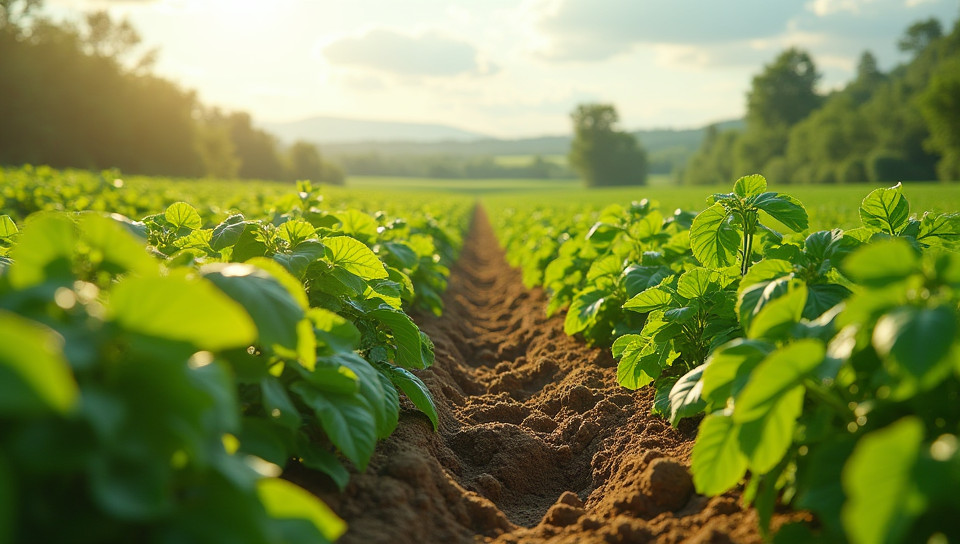Large amounts of fertilizers are used in plant-based agriculture 80%

The Hidden Cost of a Green Harvest
As the world grapples with the challenges of climate change, sustainable agriculture has become an increasingly important topic. One aspect of plant-based agriculture that often goes unremarked upon is the heavy reliance on fertilizers to boost crop yields. The use of these chemicals has far-reaching consequences for both the environment and human health.
The Fertilizer Conundrum
The agricultural industry's dependence on fertilizers is a complex issue with multiple facets. On one hand, fertilizers can significantly increase crop yields, helping to meet the demands of a growing global population. However, this comes at a steep price. Large-scale fertilizer use contributes to environmental degradation through water pollution, soil contamination, and greenhouse gas emissions.
The Human Cost
The impact of fertilizers on human health is equally concerning. Exposure to these chemicals has been linked to various health problems, including cancer, neurological disorders, and reproductive issues. Furthermore, the production and transportation of fertilizers can lead to air pollution, exacerbating respiratory diseases like asthma.
Causes of Fertilizer Overuse
Several factors contribute to the widespread use of fertilizers in plant-based agriculture: - Inefficient soil management practices - Lack of crop rotation and intercropping techniques - Dependence on a single type of fertilizer - Pressure to meet high-yield expectations from consumers and markets - Limited understanding of sustainable agricultural methods among farmers
Moving Towards Sustainable Agriculture
While the use of fertilizers is unlikely to disappear entirely, there are steps that can be taken to reduce their impact. Some potential solutions include:
- Implementing regenerative agriculture practices that prioritize soil health and biodiversity
- Encouraging the development and adoption of organic and biodynamic farming methods
- Supporting policies and initiatives that promote sustainable agricultural practices
- Educating farmers and consumers about the importance of sustainable agriculture
Conclusion
The reliance on fertilizers in plant-based agriculture is a pressing issue with far-reaching consequences. By acknowledging the problems associated with fertilizer use, we can work towards creating more sustainable agricultural systems that prioritize soil health, biodiversity, and human well-being.
- Created by: Mikołaj Krawczyk
- Created at: Aug. 20, 2024, 11:04 p.m.
- ID: 7884




